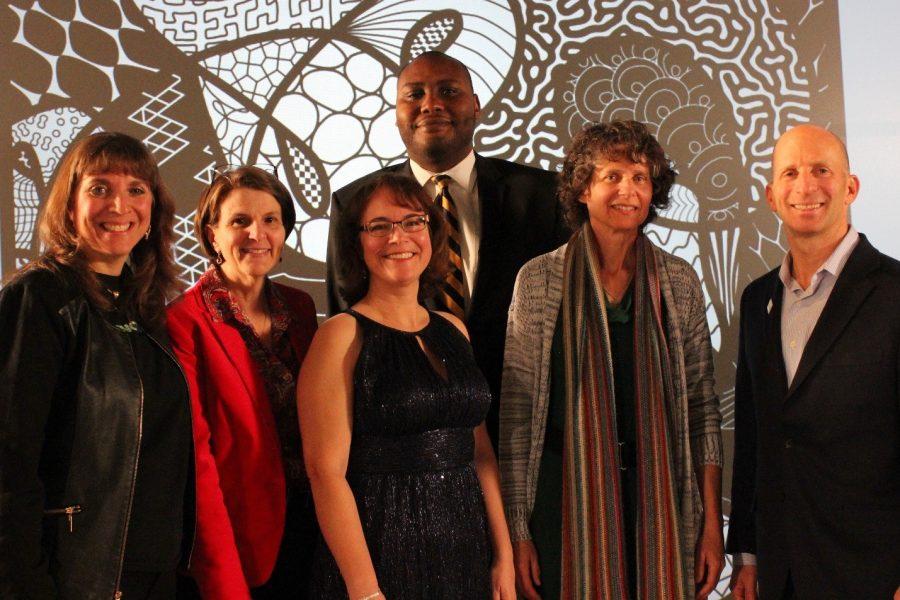Lordi’s $10,000 lesson plan
DBHS math teacher traveled to New York to receive a math teaching award.
Alg II/Trig H teacher Dena Lordi was nominated for the Rosenthal Prize by a former student and took home the second place trophy in the competition.
January 25, 2017
Eight months after first submitting an application for the Rosenthal Prize for Innovation and Math Teaching, Diamond Bar High School math teacher Dena Lordi returned home with second place and $10,000.
The Rosenthal Prize, hosted by the National Museum of Mathematics, offers prizes of up to $25,000 for an innovative, hands-on math lesson geared toward elementary and middle school students. Although Lordi is a high school teacher, that did not stop her from entering the competition; teachers of all grade levels nationwide were allowed to participate as long as their lesson followed the elementary and middle school curriculum.
“Because I teach [International Baccalaureate] Theory of Knowledge, it’s ideas like that that I’m thinking about constantly. That kind of combined in my efforts in this demonstration,” Lordi said.
In her lesson plan “Where Can I Find a Weightless Stick,” students record the balance points on a stick to determine the mean value, according to the Rosenthal Prize website. Using clothespins as weights on a balsa stick, students shifted the fulcrum to balance the stick and find the average value using applications of real world concepts.
“In real life, it doesn’t work that way. In the world of math, it works perfectly. You can draw a stick on the board and show the points and that it will balance,” Lordi said. “But there’s a conflict between what happens in the world of mathematics where everything is perfect. What happens in the real world is that no lines are straight, nothing is actually weightless and there is friction.”
Lordi initially had no intention of competing when DBHS alumna Alissa Crans, a math professor at Loyola Marymount University, nominated her for the prize. However, Crans insisted upon Lordi’s participation in the program.
“It was one of those things I didn’t think I have time to do it, but for every excuse I would give her, she would email me back with some reason why that wasn’t valid,” Lordi said.
Her submitted lesson— an adaptation of the original activity she used with her Algebra II/Trigonometry Honors class— included added manipulatives and other modifications for it to be more interactive.
“I’m always thinking of ways in which I can do things that are fun that somehow involve the student in learning mathematics,” Lordi said.
Since she does not have experience teaching middle school students, Lordi took her lesson plan to Chaparral Middle School, where she worked with math teacher Denise Loera and her seventh grade class to implement and videotape her lesson.
Along with the videotape, Lordi submitted a 15-page lesson plan, letters of recommendation and an essay as part of the final round of judging after she qualified for the preliminary round.
“The lesson is not about finding averages. It’s about the conflict between the real world and the world of math. Students have to realize that to solve the problem,” Lordi said.
To receive her prize money, Lordi traveled to New York City in early January to attend the awards ceremony along with the other prize winners. Her travel expenses and four day stay there were covered by the National Museum of Mathematics.
Although Lordi isn’t sure what she will do with the money, she plans on donating a portion of her winnings to the classes that participated in her lesson.
“In terms of my career, it’s really important to me and it has been throughout my career, to be a teacher that reaches outside my school,” Lordi said. “And applying for this prize is part of that.”









